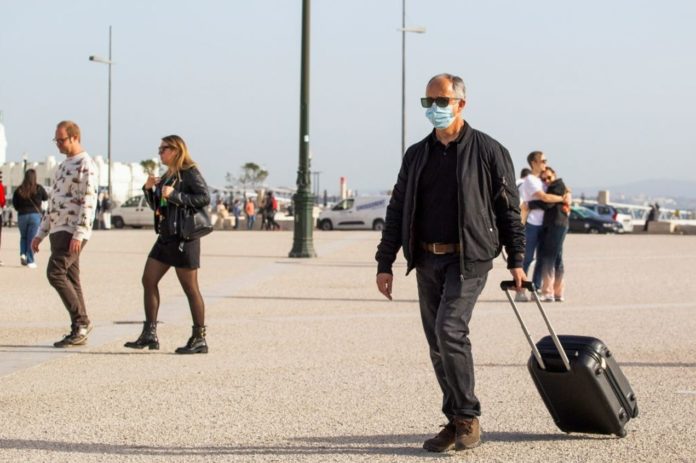A new Kaiser Permanente study published today in The Lancet Regional Health – Americas, the Pfizer-BioNTech COVID-19 vaccine is more effective at preventing illness and hospitalization one month after the third shot than two doses of the vaccine after one month.
From December 14, 2020, to December 5, 2021, this research study assessed electronic health records of 3.1 million Kaiser Permanente members in Southern California to determine effectiveness. 197,535 patients (6.3 percent) were infected with SARS-CoV-2 during the study period, with 15,786 (8 percent) admitted to the hospital. Delta, not omicron, was the most common variation during the study period.
The study found:
- The effectiveness of a two-dose vaccine against infection decreased from 85 percent the first month after vaccination to 49 percent eight months later.
- Except for individuals 75 years and older, or those with impaired immune systems, the 2-dose vaccine’s effectiveness against hospitalization remained high (90 percent) throughout the 8-month study and did not decline.
- Immunocompromised patients had a 74 percent chance of being admitted to the hospital, while those 75 and older had a 77 percent chance.
- Within the first three months after vaccination, the 3-dose vaccine was found to be 88 percent effective against illness and 97 percent effective against hospitalization.
“What we see from this research is that the public health impact of a third dose to prevent severe disease is substantial,” said the authors of the study, adding, “Importantly, all studies that have evaluated the vaccine effectiveness of a third dose — including ours — have shown a meaningful improvement in vaccine effectiveness against a broad range of SARS-CoV-2 outcomes.”
However, according to another countrywide study conducted by the US Centers for Disease Control and Prevention (CDC), immunity against severe COVID-19 disease begins to fade four months after receiving the third dose of an mRNA vaccine (Pfizer or Moderna).
In a similar way to how mRNA vaccine effectiveness wanes after a second shot, waning immunity was observed throughout both the Delta and Omicron variant waves.
“The mRNA vaccines, including the booster shot, are very effective, but effectiveness declines over time. Our findings suggest that additional doses may be necessary to maintain protection against COVID-19, especially for high-risk populations,” says study co-author Brian Dixon, adding “We also found that people who are Hispanic or Black are half as likely to have a third vaccine dose than people who are white, making people who are Hispanic or Black more vulnerable to severe COVID and highlighting the need for public health officials to double down on efforts to protect these vulnerable populations.”
As of February 8, 2022, 72.3 percent of Americans 65 years or older who received a booster dose were white, 8.9 percent were Hispanic, and 7.6 percent were Black, according to a CDC dashboard.
The rates for those who are Black or Hispanic are lower than the proportion of those groups who have got two doses, and these proportions are lower than the percentages of those groups in the US population, demonstrating discrepancies in who has received third doses in the United States.
There has, however, been a significant increase in vaccination rates among these populations in the last two weeks (16.9 percent of recent boosters are among people who are Hispanic; 12.7 percent of recent boosters are among people who are Black).
In the study, 12 percent of white patients in the ED/UC had gotten a third dose, compared to 7 percent of Hispanic patients and 6 percent of Black patients. Similar discrepancies in third dosage administration were reported among individuals admitted to the hospital with severe COVID-19.
Overall, the study found that people who received the second and third doses of an mRNA vaccine had better protection against hospitalizations (severe sickness) than those who received only the first round (symptoms which may not require hospitalization). Overall, vaccine effectiveness during the Omicron period was lower than during the Delta period.
During the Delta-predominant time (summer/early fall 2021) vaccine efficacy against ED/UC visits decreased from 97 percent within the first two months of receiving a booster to 89 percent at four months or more. During the Omicron-dominant season (late fall 2021/winter 2021-22), vaccine efficacy against ED/UC visits was 87 percent after the third dose for the first two months, then dropped to 66 percent after four months.
After the third dose, protection against Delta variant-related hospitalization dropped from 96% after two months to 76% after four months or longer. First-two-month vaccine efficacy against Omicron variant-associated hospitalizations was 90%, falling to 78% at four months.
“Our findings confirm the importance of receiving a third dose of mRNA COVID-19 vaccine to prevent moderate-to-severe COVID-19 illness, especially among those with comorbidities. That protection conferred by mRNA vaccines waned in the months following a third vaccine dose supports further consideration of booster doses to sustain protection against moderate-to-severe COVID-19 illness,” added Shaun Grannis, study co-author.
Image Credit: Getty
You were reading: 3 doses of mRNA COVID-19 vaccine better than 2? New US CDC report raises some concerns
